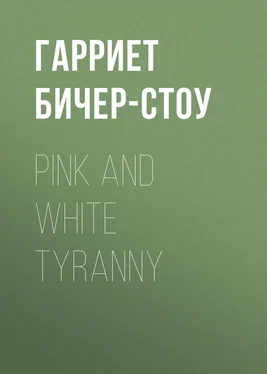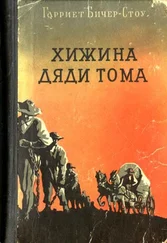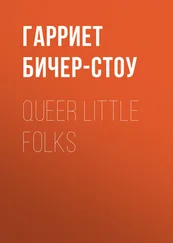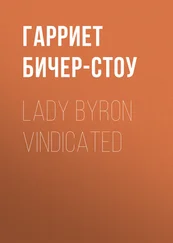Гарриет Бичер-Стоу - Pink and White Tyranny
Здесь есть возможность читать онлайн «Гарриет Бичер-Стоу - Pink and White Tyranny» — ознакомительный отрывок электронной книги совершенно бесплатно, а после прочтения отрывка купить полную версию. В некоторых случаях можно слушать аудио, скачать через торрент в формате fb2 и присутствует краткое содержание. Жанр: foreign_children, literature_19, foreign_antique, foreign_prose, на английском языке. Описание произведения, (предисловие) а так же отзывы посетителей доступны на портале библиотеки ЛибКат.
- Название:Pink and White Tyranny
- Автор:
- Жанр:
- Год:неизвестен
- ISBN:нет данных
- Рейтинг книги:4 / 5. Голосов: 1
-
Избранное:Добавить в избранное
- Отзывы:
-
Ваша оценка:
- 80
- 1
- 2
- 3
- 4
- 5
Pink and White Tyranny: краткое содержание, описание и аннотация
Предлагаем к чтению аннотацию, описание, краткое содержание или предисловие (зависит от того, что написал сам автор книги «Pink and White Tyranny»). Если вы не нашли необходимую информацию о книге — напишите в комментариях, мы постараемся отыскать её.
Pink and White Tyranny — читать онлайн ознакомительный отрывок
Ниже представлен текст книги, разбитый по страницам. Система сохранения места последней прочитанной страницы, позволяет с удобством читать онлайн бесплатно книгу «Pink and White Tyranny», без необходимости каждый раз заново искать на чём Вы остановились. Поставьте закладку, и сможете в любой момент перейти на страницу, на которой закончили чтение.
Интервал:
Закладка:
Harriet Beecher Stowe
Pink and White Tyranny / A Society Novel
PREFACE
MY Dear Reader,—This story is not to be a novel, as the world understands the word; and we tell you so beforehand, lest you be in ill-humor by not finding what you expected. For if you have been told that your dinner is to be salmon and green peas, and made up your mind to that bill of fare, and then, on coming to the table, find that it is beefsteak and tomatoes, you may be out of sorts; not because beefsteak and tomatoes are not respectable viands, but because they are not what you have made up your mind to enjoy.
Now, a novel, in our days, is a three-story affair,—a complicated, complex, multiform composition, requiring no end of scenery and dramatis personæ , and plot and plan, together with trap-doors, pit-falls, wonderful escapes and thrilling dangers; and the scenes transport one all over the earth,—to England, Italy, Switzerland, Japan, and Kamtschatka. But this is a little commonplace history, all about one man and one woman, living straight along in one little prosaic town in New England. It is, moreover, a story with a moral; and for fear that you shouldn’t find out exactly what the moral is, we shall adopt the plan of the painter who wrote under his pictures, “This is a bear,” and “This is a turtle-dove.” We shall tell you in the proper time succinctly just what the moral is, and send you off edified as if you had been hearing a sermon. So please to call this little sketch a parable, and wait for the exposition thereof.
PINK AND WHITE TYRANNY
CHAPTER I
“WHO is that beautiful creature?” said John Seymour, as a light, sylph-like form tripped up the steps of the veranda of the hotel where he was lounging away his summer vacation.
“That! Why, don’t you know, man? That is the celebrated, the divine Lillie Ellis, the most adroit ‘fisher of men’ that has been seen in our days.”
“By George, but she’s pretty, though!” said John, following with enchanted eyes the distant motions of the sylphide.
The vision that he saw was of a delicate little fairy form; a complexion of pearly white, with a cheek of the hue of a pink shell; a fair, sweet, infantine face surrounded by a fleecy radiance of soft golden hair. The vision appeared to float in some white gauzy robes; and, when she spoke or smiled, what an innocent, fresh, untouched, unspoiled look there was upon the face! John gazed, and thought of all sorts of poetical similes: of a “daisy just wet with morning dew;” of a “violet by a mossy stone;” in short, of all the things that poets have made and provided for the use of young gentlemen in the way of falling in love.
This John Seymour was about as good and honest a man as there is going in this world of ours. He was a generous, just, manly, religious young fellow. He was heir to a large, solid property; he was a well-read lawyer, established in a flourishing business; he was a man that all the world spoke well of, and had cause to speak well of. The only duty to society which John had left as yet unperformed was that of matrimony. Three and thirty years had passed; and, with every advantage for supporting a wife, with a charming home all ready for a mistress, John, as yet, had not proposed to be the defender and provider for any of the more helpless portion of creation. The cause of this was, in the first place, that John was very happy in the society of a sister, a little older than himself, who managed his house admirably, and was a charming companion to his leisure hours; and, in the second place, that he had a secret, bashful self-depreciation in regard to his power of pleasing women, which made him ill at ease in their society. Not that he did not mean to marry. He certainly did. But the fair being that he was to marry was a distant ideal, a certain undefined and cloudlike creature; and, up to this time, he had been waiting to meet her, without taking any definite steps towards that end. To say the truth, John Seymour, like many other outwardly solid, sober-minded, respectable citizens, had deep within himself a little private bit of romance. He could not utter it, he never talked it; he would have blushed and stammered and stuttered wofully, and made a very poor figure, in trying to tell any one about it; but nevertheless it was there, a secluded chamber of imagery, and the future Mrs. John Seymour formed its principal ornament.
The wife that John had imaged, his dream -wife, was not at all like his sister; though he loved his sister heartily, and thought her one of the best and noblest women that could possibly be.
But his sister was all plain prose,—good, strong, earnest, respectable prose, it is true, but yet prose. He could read English history with her, talk accounts and business with her, discuss politics with her, and valued her opinions on all these topics as much as that of any man of his acquaintance. But, with the visionary Mrs. John Seymour aforesaid, he never seemed to himself to be either reading history or settling accounts, or talking politics; he was off with her in some sort of enchanted cloudland of happiness, where she was all to him, and he to her,—a sort of rapture of protective love on one side, and of confiding devotion on the other, quite inexpressible, and that John would not have talked of for the world.
So when he saw this distant vision of airy gauzes, of pearly whiteness, of sea-shell pink, of infantine smiles, and waving, golden curls, he stood up with a shy desire to approach the wonderful creature, and yet with a sort of embarrassed feeling of being very awkward and clumsy. He felt, somehow, as if he were a great, coarse behemoth; his arms seemed to him awkward appendages; his hands suddenly appeared to him rough, and his fingers swelled and stumpy. When he thought of asking an introduction, he felt himself growing very hot, and blushing to the roots of his hair.
“Want to be introduced to her, Seymour?” said Carryl Ethridge. “I’ll trot you up. I know her.”
“No, thank you,” said John, stiffly. In his heart, he felt an absurd anger at Carryl for the easy, assured way in which he spoke of the sacred creature who seemed to him something too divine to be lightly talked of. And then he saw Carryl marching up to her with his air of easy assurance. He saw the bewitching smile come over that fair, flowery face; he saw Carryl, with unabashed familiarity, take her fan out of her hand, look at it as if it were a mere common, earthly fan, toss it about, and pretend to fan himself with it.
“I didn’t know he was such a puppy!” said John to himself, as he stood in a sort of angry bashfulness, envying the man that was so familiar with that loveliness.
Ah! John, John! You wouldn’t, for the world, have told to man or woman what a fool you were at that moment.
“What a fool I am!” was his mental commentary: “just as if it was any thing to me.” And he turned, and walked to the other end of the veranda.
“I think you’ve hooked another fish, Lillie,” said Belle Trevors in the ear of the little divinity.
“Who. . . ?”
“Why! that Seymour there, at the end of the veranda. He is looking at you, do you know? He is rich, very rich, and of an old family. Didn’t you see how he started and looked after you when you came up on the veranda?”
“Oh! I saw plain enough,” said the divinity, with one of her unconscious, baby-like smiles.
“What are you ladies talking?” said Carryl Ethridge.
“Oh, secrets!” said Belle Trevors. “You are very presuming, sir, to inquire.”
“Mr. Ethridge,” said Lillie Ellis, “don’t you think it would be nice to promenade?”
Читать дальшеИнтервал:
Закладка:
Похожие книги на «Pink and White Tyranny»
Представляем Вашему вниманию похожие книги на «Pink and White Tyranny» списком для выбора. Мы отобрали схожую по названию и смыслу литературу в надежде предоставить читателям больше вариантов отыскать новые, интересные, ещё непрочитанные произведения.
Обсуждение, отзывы о книге «Pink and White Tyranny» и просто собственные мнения читателей. Оставьте ваши комментарии, напишите, что Вы думаете о произведении, его смысле или главных героях. Укажите что конкретно понравилось, а что нет, и почему Вы так считаете.












